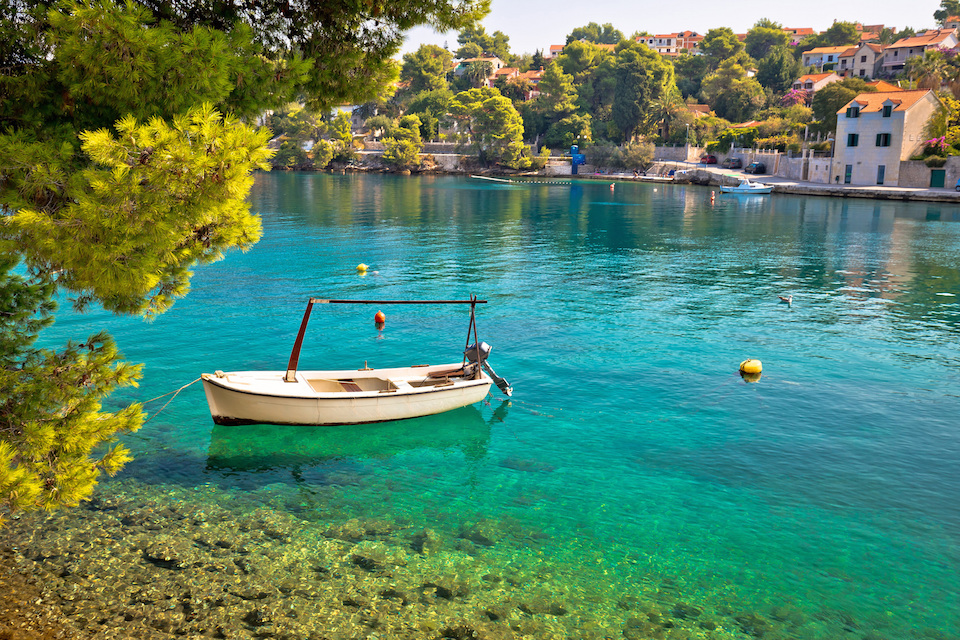Teaching in Croatia
Options for teaching in Croatia
Teachers in Croatia will find most job opportunities centered in bigger towns and cities such as Zagreb, where most of the international schools and private language schools are located.

Salary and benefits while teaching in Croatia
| Teaching Benefit Type | Teaching Benefit Details |
|---|---|
| Yearly Salary | $800 – 1,200 USD at language schools, $2,000 USD upwards at international schools and universities. |
| Working Hours | 21 – 24 teaching hours a week plus some additional lesson-planning time. |
| Relocation Allowance | Not provided. |
| Vacation | Mid-June – September, plus all national holidays which occur during fall, spring and Christmas. |
| Health Insurance | Not usually provided, however many international schools in Croatia offer private medical insurance. State health insurance is mandatory in Croatia and signing up is a part of the visa application process. Select EU nationals are exempt from the monthly payment, while all non-EU nationals need to pay an upfront payment of 450 kuna as well as a monthly payment to avail of a health insurance card. |
| Contract Duration | 1 – 2 years. |
Teach in Croatia
Hiring
The school year in Croatia starts in September and ends in the middle of June. Teachers can be hired for international and private language schools in Croatia year round.
Qualifications to teach in Croatia
Croatia is a country that highly values education, so teachers looking to teach English in Croatia will need a Bachelor’s degree in any field of study in combination with an internationally recognized TEFL certificate in order to qualify for most ESL teaching jobs.
International schools in Croatia require teachers to have a postgraduate certificate in education as well as relevant teaching experience. As a result, salaries are typically higher at Croatian international schools compared to private language schools.
Visas for teachers in Croatia
Croatia is a European Union member state, which means that EU nationals don’t need a visa to teach in Croatia. Non-EU nationals will need to apply for a work permit to teach in Croatia.

Living in Croatia
While food and transport is cheap in Croatia, accommodation can be expensive in some of the bigger towns and cities. Lots of teachers abroad in Croatia like to share accommodation to offset this cost.
Things for teachers to do in Croatia
While Croatia is world famous for its Dalmatian coastline boasting miles of stunning white beaches, sunbathing isn’t all there is to do in this historic country! For history buffs, there are relics from the Roman, Byzantine, Venetian and Austro-Hungarian eras to be found everywhere.
The rugged Croatian countryside has lots to offer the avid sightseer, from mountains to national parks. The walled city of Dubrovnik is a must visit, with its dazzling views of the surrounding cliffs and ocean.
Island hopping is a popular summertime activity in Croatia, and crowds also flock to the coast for Croatia’s numerous art and music festivals. For teachers abroad, Croatian cuisine is sure to be a particular highlight, with locally-sourced foodstuffs, wines and olive oils to be found cheaply at local markets and restaurants.

Experience teaching in Croatia
Register for a teacher account to apply for teaching jobs in Croatia.
Croatia at a glance
Country information
Capital: Zagreb
Language: Croatian
Population: 4.470 million
Currency: Croatian kuna
Government: Parliamentary republic
Major religion: Predominantly Roman Catholic
Climate: A combination of alpine and mediterranean
Quick facts
Dalmatian dogs, made famous by the Disney movie 101 Dalmatians, come from the southern Croatian region of Dalmatia.
The Roman amphitheater in Pula, Croatia, is in the top six largest amphitheaters in the world and the only one with all three rows preserved.
A third of Croatia is covered in forest.
Croatia is home to an impressive seven UNESCO World Heritage sites.
Croatia has produced two Nobel Prize winners in the field of chemistry: Lavoslav Ruzicka in 1939 and Vladimir Prelog in 1975.
The TV show Game of Thrones is partly filmed in Croatia, on the Dalmatian coast, in Split and Dubrovnik.
The Zinfandel grape originated in Croatia.



















